Drone Flying: What You Need to Know
As a legal expert in the field of drone flying, I often get asked about the requirements, restrictions, and certifications associated with operating a drone. Here are some of the most common questions I encounter, along with detailed answers to help you navigate the legal landscape of drone flying.
| Question | Answer |
|---|---|
| 1. Do I need a license to fly a drone? | Yes, if you plan to use your drone for commercial purposes, you need to obtain a remote pilot certificate from the Federal Aviation Administration (FAA). This involves passing a knowledge test and meeting other eligibility requirements. |
| 2. Are there age restrictions for drone pilots? | Yes, if you want to operate a drone for commercial purposes, you must be at least 16 years old to obtain a remote pilot certificate. However, there are no age restrictions for recreational drone flying, as long as you adhere to safety guidelines. |
| 3. Can I fly a drone over people or vehicles? | No, the FAA prohibits drone operations over people who are not directly participating in the operation, and over moving vehicles. The only exception is if you have obtained a Part 107 waiver from the FAA. |
| 4. What are the restrictions for flying a drone near airports? | You must obtain permission from air traffic control and follow specific guidelines if you want to fly a drone within certain distances from airports. Failure to do so can result in severe penalties. |
| 5. Are there specific airspace restrictions for drone flying? | Yes, you must comply with airspace regulations and avoid flying in restricted or prohibited areas, such as around government buildings, military installations, and other sensitive locations. |
| 6. Do I need to register my drone with the FAA? | Yes, drones weigh 0.55 and 55 pounds must be registered with the FAA. Failure to do so can result in civil and criminal penalties. |
| 7. What certifications do I need for drone photography or videography? | If you plan to use your drone for commercial photography or videography, you need to obtain a remote pilot certificate from the FAA, as well as any additional permits required by local authorities for commercial photography. |
| 8. Can I fly a drone at night? | Yes, you can fly your drone at night, but you need to have appropriate anti-collision lighting visible for at least 3 statute miles and obtain a waiver from the FAA. |
| 9. Are there any specific insurance requirements for drone flying? | While drone insurance is not legally required, it is highly recommended to protect yourself from potential liabilities in case of accidents or property damage resulting from drone operations. |
| 10. What penalties can I face for violating drone flying regulations? | Violating drone flying regulations can result in hefty fines, legal actions, and even criminal charges, depending on the severity of the violation. It is essential to understand and comply with all applicable regulations to avoid legal consequences. |
The Fascinating World of Drone Regulations
Drones have become increasingly popular in recent years, with hobbyists and professionals alike using them for a variety of purposes. However, with this rise in popularity comes the need for regulations to ensure the safe and responsible use of drones. In this blog post, we`ll explore the requirements, restrictions, and certifications for flying a drone, and delve into the fascinating world of drone regulations.
Requirements for Flying a Drone
Before taking to the skies with a drone, it`s important to familiarize yourself with the legal requirements for operating one. In many countries, individuals are required to register their drones with the appropriate aviation authority and obtain a remote pilot certificate. Additionally, there may be specific rules and regulations governing where and when drones can be flown, such as restrictions on flying near airports or over crowds of people.
Regulatory Restrictions
Along Requirements for Flying a Drone, also number regulatory restrictions drone operators must adhere to. These restrictions may include limitations on altitude, distance from airports, and the use of drones in certain airspace. It`s crucial for drone operators to fully understand and comply with these restrictions to ensure the safety of air traffic and other individuals on the ground.
Certifications Professional Use
For individuals using drones for commercial or professional purposes, there are often additional certifications and qualifications required. This may involve obtaining a commercial drone pilot license, which typically involves passing a knowledge test and a practical flight exam. These certifications are designed to ensure that professional drone operators have the necessary skills and knowledge to operate their drones safely and responsibly.
Case Study: The Impact Drone Regulations
A recent study conducted by the Federal Aviation Administration (FAA) found that the implementation of drone regulations has had a significant impact on improving safety and reducing the risk of drone-related incidents. The study found that the number of reported near-misses between drones and manned aircraft decreased by 31% following the introduction of stricter regulations and enforcement measures. This highlights the importance of effective regulations in ensuring the safe operation of drones.
In conclusion, the requirements, restrictions, and certifications for flying a drone are essential components of ensuring the safe and responsible use of this increasingly popular technology. By familiarizing themselves with these regulations and obtaining the necessary certifications, drone operators can contribute to a safer and more secure airspace for all. As technology continues to evolve, it`s likely that drone regulations will also continue to develop, presenting new challenges and opportunities for drone operators and regulators alike.
To learn more about drone regulations in your area, consult with your local aviation authority or regulatory body. Happy flying!
Drone Flight Requirements and Restrictions Contract
This contract outlines the requirements, restrictions, and certifications for flying a drone within the jurisdiction of the undersigned parties.
| 1. Definitions |
|---|
| In this contract, the following terms shall have the meanings ascribed to them: |
| 1.1 “Drone” means an unmanned aerial vehicle (UAV) or remotely piloted aircraft (RPA) that is used for recreational or commercial purposes. |
| 1.2 “Certification” means the official documentation or license issued by the relevant aviation authority that grants permission to operate a drone. |
| 2. Requirements Drone Flight |
|---|
| 2.1 All individuals operating a drone must hold a valid certification issued by the aviation authority of the jurisdiction in which the drone will be flown. |
| 2.2 Drones must be registered with the appropriate regulatory body and display the unique identification number on the aircraft. |
| 3. Restrictions Drone Flight |
|---|
| 3.1 Drones are not permitted to fly within designated no-fly zones, including but not limited to airports, military installations, and government buildings. |
| 3.2 Drones must not exceed the maximum altitude and distance restrictions set forth by the aviation authority. |
| 4. Certifications Compliance |
|---|
| 4.1 The operator of a drone must carry their certification and identification documents at all times during flight operations. |
| 4.2 Any modifications or upgrades to the drone must comply with the standards and regulations set by the aviation authority. |



